Elderly individuals are particularly vulnerable to isolation, especially when health challenges restrict their ability to engage with the outside world. This pervasive loneliness can be emotionally distressing and also poses significant risks to their overall well-being.
In this instance, live-in carers become invaluable companions, offering more than just assistance with daily tasks. Their presence goes beyond caregiving, addressing the profound need for human connection that is essential for the mental, emotional, and physical health of elderly people.
As we explore the role of live-in carers, it becomes evident that their dedication is a powerful remedy for loneliness.
Understanding Loneliness in the Elderly
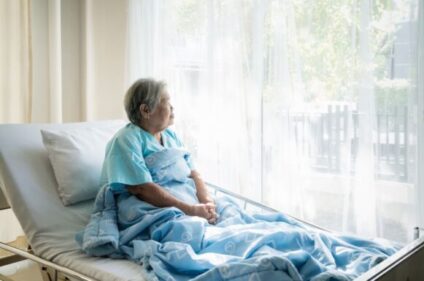
Loneliness among older people can become a difficult reality when a loved one is without a partner, loses friends, or faces health challenges that limit their access to social connections.
Coping with these circumstances involves not only managing the emotional impact of loss and death but also navigating the profound sense of isolation that arises when the circle of dependable individuals diminishes. It becomes a poignant experience, knowing that there are fewer people to rely on during these trying times.
Lonely people are more prone to depression, cognitive decline, and dementia, making it critical that they find companionship to combat isolation and gain back their independence.
Live-In Carers and Loneliness
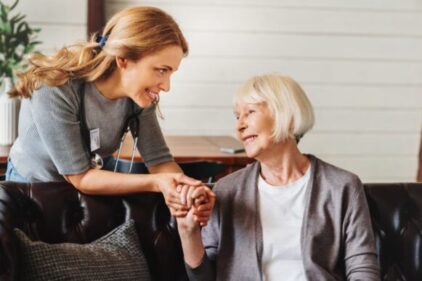
Caregivers are all about adaptability. They do what’s needed, whether it’s a little help or a lot, tailoring their support to fit each person’s situation.
From handling daily tasks to providing more complex care, like teaching new skills such as online shopping, caregivers cover a range of needs.
The goal isn’t just physical care but also making sure individuals feel emotionally supported in the comfort of their own homes. It’s about keeping things practical, recognising that independence and companionship are the aim, and the support provided is grounded in that principle.
Reasons to Use Live-In Carers to Combat Loneliness
Live-in carers can alleviate loneliness for the elderly in many ways. So, if you or a loved one feel isolated and can no longer get out and do enjoyable things, find out how a live-in carer can help.
24/7 Companionship
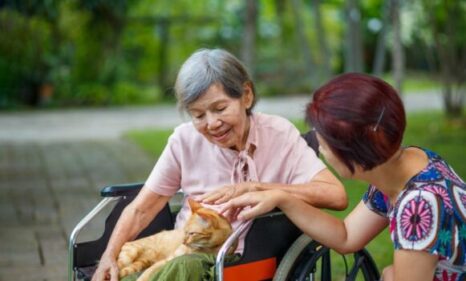
Even when practical assistance may not be immediately necessary, live-in carers offer companionship, engaging individuals with activities like board games and meaningful conversations to keep them stimulated.
Additionally, companion carers understand the importance of privacy. If solitude is required, they respect it and, if needed, take on household chores to maintain the individual’s privacy.
This round-the-clock presence ensures that individuals never feel alone, fostering a sense of connection and preventing the detrimental effects of isolation.
Tailored Care Plans
At Ivy Palmer Home Care, our commitment goes beyond merely assisting; we prioritise creating meaningful connections between individuals and their carers.
We understand the importance of a good match, ensuring that the individual’s needs are met, and their personalities complement each other.
So, what is our process?
Given the intimate nature of 24/7 home care, it’s crucial that there’s a positive dynamic between the individual and their carer, fostering a comfortable and supportive environment. To facilitate this, we offer the opportunity for individuals to interview potential carers beforehand, allowing them to gauge compatibility.
Additionally, our flexible approach extends to trial runs, ensuring that individuals can experience the partnership firsthand before committing.
At Ivy Palmer, we recognise that the right connection can make all the difference in providing the appropriate emotional and physical support for a fulfilling caregiving experience.
Emotional Bonding
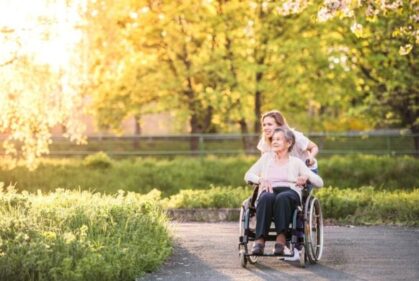
For those facing mobility challenges, whether due to being bed-bound or using a wheelchair, a live-in carer becomes an essential ally. They assist in physically getting individuals to and from places and go the extra mile in setting up video calls to keep them connected with loved ones.
Additionally, carers facilitate outdoor activities, helping individuals in wheelchairs to go out and meet people, ensuring they can maintain emotional connections and even forge new ones.
This active social engagement addresses the gap between an individual’s social needs and what they may have experienced before, fostering a sense of belonging and connection in their daily lives.
When at home, a live-in carer can provide constant companionship, being that trusted someone an individual can converse with.
Hobby Encouragement
Engaging in hobbies can be made a lot easier when shared with a companion, and a live-in carer can be that supportive friend.
Beyond providing physical assistance, a live-in carer becomes a source of encouragement, boosting an individual’s confidence to explore new hobbies and social activities.
The presence of a caring companion offers a sense of security, making it easier for individuals to step out of their comfort zones and try something new.
Daily Activity Assistance
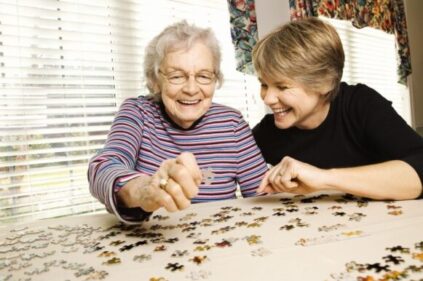
When transportation becomes a barrier, impeding an individual’s ability to carry out daily tasks, a live-in carer can step in.
Offering more than just companionship, these caregivers extend their support by providing transportation services. From driving individuals to various events to a simple trip to the shops, live-in carers ensure that individuals can still venture out, interact with others, and maintain a connection with the world beyond their homes.
Safety
Loneliness can have profound mental and physical consequences. The role of a carer becomes crucial in combating these effects.
Furthermore, their 24/7 presence gives peace of mind to the individual. For example, having a trusted person around in the evenings will alleviate their concerns if they feel vulnerable. Additionally, knowing someone is there to help if they have an accident is reassuring.
Whether assisting with daily tasks like getting in and out of bed, cooking, or offering any other necessary support, the live-in carer becomes a cornerstone of assurance for the individual and their family.
Ultimately, the right live-in carer is a friend, alleviating loneliness and improving an individual’s health and daily life.
Are you concerned about a loved one? Maybe you’re wondering what the signs of loneliness in elderly relatives are.
Well, if an individual is having trouble sleeping, experiences low moods, lacks confidence and motivation, or has had a change in appetite, it could be a sign of loneliness and feeling isolated from the world. Contact our team at Ivy Palmer to see how we can provide help for a lonely and elderly relative or friend.

